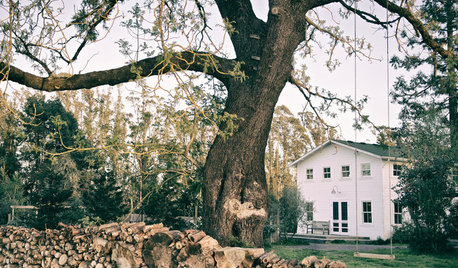Organic Crop Management for Market Retail
brgcuvi
10 years ago
Related Stories

EDIBLE GARDENSHow to Grow Your Own Sweet Summer Crops
This guide will help any gardener get started on growing the freshest warm-season veggies and berries for summer
Full Story
FEEL-GOOD HOMERegain Calm With a New Weekly Routine
Having a day-by-day housekeeping schedule makes the chores a lot more manageable
Full Story
ORGANIZINGYour Total Home Organizing and Decluttering Guide
Take it slow or be a speed demon — this room-by-room approach to organizing and storage will get your home in shape no matter how you roll
Full Story
HOUZZ TOURSHouzz Tour: Picture-Perfect Simplicity
It’s like camping out in a catalog sometimes at this classic farmhouse — Pottery Barn and other retailers love it for photo shoots
Full Story
HOME TECHHarness the Cloud: 8 Ways to Automate Your Housekeeping
Make life easier by scheduling regular deliveries, managing appliances, simplifying meal planning and more via the web
Full Story
CLOSETSBuild a Better Bedroom: Inspiring Walk-in Closets
Make dressing a pleasure instead of a chore with a beautiful, organized space for your clothes, shoes and bags
Full Story
LIFERelocating? Here’s How to Make Moving In a Breeze
Moving guide, Part 2: Helpful tips for unpacking, organizing and setting up your new home
Full Story
ORGANIZINGSimple Pleasures: Preserving Analog Memories in a Digital World
Too often our photos and mementos accumulate in computers and in piles. Here’s how to free them up to be displayed and enjoyed
Full Story
STORAGE5 Tips for Lightening Your Closet’s Load
Create more space for clothes that make you look and feel good by learning to let go
Full Story
MOST POPULARBlast Decluttering Roadblocks Once and for All
Change your thinking to get the streamlined, organized home of your dreams
Full StorySponsored






myfamilysfarm
Mark
Related Professionals
Simpsonville Landscape Architects & Landscape Designers · Bridgetown Landscape Architects & Landscape Designers · Piqua Landscape Architects & Landscape Designers · Woburn Landscape Contractors · Allentown Landscape Contractors · Golden Landscape Contractors · Laguna Hills Landscape Contractors · Newberg Landscape Contractors · Oak Forest Landscape Contractors · Saint John Landscape Contractors · St. Louis Landscape Contractors · University City Landscape Contractors · West Orange Landscape Contractors · New Carrollton Landscape Contractors · Downey Solar Energy Systemsboulderbelt
little_minnie
hillbillymick
boulderbelt
brgcuviOriginal Author
boulderbelt
little_minnie
randy41_1
kelise_m
brgcuviOriginal Author
hillbillymick
little_minnie
boulderbelt
randy41_1
hillbillymick
boulderbelt